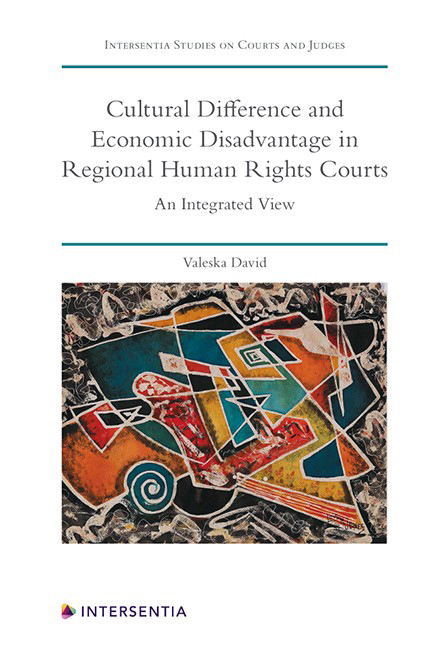Book contents
- Frontmatter
- Dedication
- Foreword
- Preface
- Acknowledgements
- Contents
- List of Cases
- Introduction
- PART I THEORETICAL FOUNDATIONS
- PART II RETHINKING CULTURAL DIFFERENCE FROM AN INTEGRATED PERSPECTIVE ON HUMAN RIGHTS
- PART III RETHINKING ECONOMIC DISADVANTAGE FROM AN INTEGRATED PERSPECTIVE ON HUMAN RIGHTS
- Conclusion
- Bibliography
- Index
- About the Author
Chapter 5 - An Integrated Approach to Economic Disadvantage in the Inter-American Court of Human Rights
Published online by Cambridge University Press: 21 July 2020
- Frontmatter
- Dedication
- Foreword
- Preface
- Acknowledgements
- Contents
- List of Cases
- Introduction
- PART I THEORETICAL FOUNDATIONS
- PART II RETHINKING CULTURAL DIFFERENCE FROM AN INTEGRATED PERSPECTIVE ON HUMAN RIGHTS
- PART III RETHINKING ECONOMIC DISADVANTAGE FROM AN INTEGRATED PERSPECTIVE ON HUMAN RIGHTS
- Conclusion
- Bibliography
- Index
- About the Author
Summary
INTRODUCTION
The Inter-American Court and the Commission are familiar with issues of poverty and inequality. They work in a region well known for its stark socio-economic contradictions. Poverty levels are alarmingly high and the region features as the most unequal in terms of income distribution. Even though a big part of the Court's case law consists of cases involving gross and systematic violations perpetrated by dictatorships or authoritarian regimes, over the years an increasing number of cases have been brought about claims of inequality, some of them for reasons related to socio-economic disadvantage. The importance that the issue has attained in the region today is aptly reflected by the process of consultation that the Commission recently concluded on the topic of poverty and human rights. It is therefore not surprising that the Court, following in many respects the Commission's drive, has been rather sensitive to questions of poverty and socio-economic difference. Nevertheless, while poverty is in the background of a number of cases, it should be pointed out that very few of them involve rights claims directly grounded in socio-economic disadvantage.
It is against this backdrop that the present chapter aims, as the previous one did with regard to the Strasbourg Court, to explore first whether and how the Court accounts for claims of economic difference. Or, in other words, rights assertions that reflect the needs and concerns of those who are regarded as different and deviant from a socio-economic point of view. These are mostly people living in poverty or otherwise socio-economically disadvantaged. Secondly, this chapter explores how the Court accounts for those claims from a particular point of view, namely from an integrated and relational approach to human rights. In this way, the discussion that follows seeks to offer a complex understanding of the cases, one that better reflects the lived reality of rights holders and contemporary forms of normative interaction. Since prevailing approaches to issues of social difference and equality are oft en quite compartmentalised or narrowly framed, a comprehensive perspective may provide relevant insights for dealing with claims of socio-economic disadvantage, which, as seen in the first part of this book, pose a number of interesting challenges to human rights courts.
- Type
- Chapter
- Information
- Cultural Difference and Economic Disadvantage in Regional Human Rights CourtsAn Integrated View, pp. 299 - 366Publisher: IntersentiaPrint publication year: 2020



